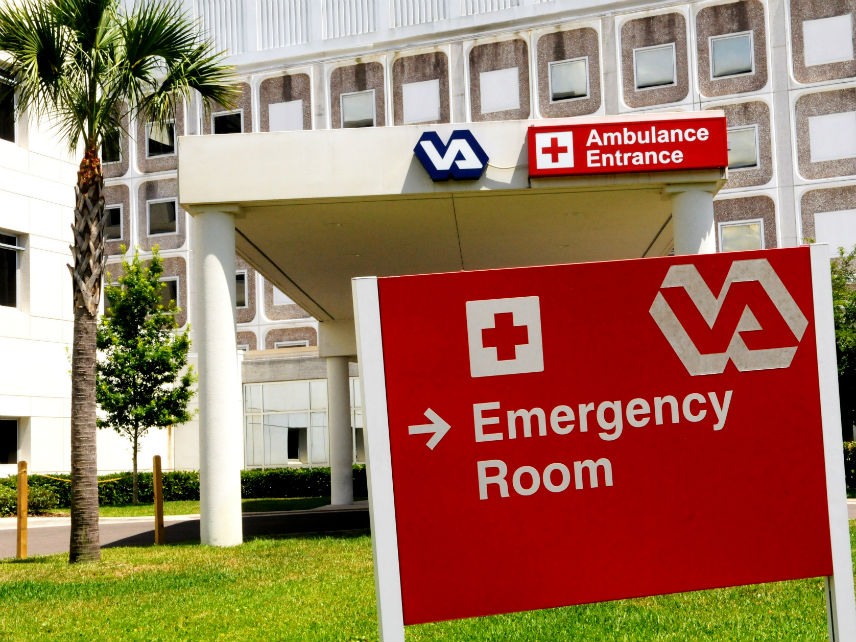Department of Veterans Affairs
The VA's Gross Mismanagement Does Nothing to Honor Vets
The Department of Veterans Affairs is honoring veterans of Veterans Day while simultaneously screwing them over again and again.

All across America, Veterans Affairs (VA) departments are putting on events to honor veterans for their service. That's nice, but a more meaningful way to honor them would be to address the serious mismanagement that has come to define the department.
In 2014, an audit revealed that 100,000 veterans had been waiting in months- and yearslong lines for care at 700 VA hospitals, and that employees had attempted to mask the issue by falsifying scheduling records. At least 13 percent of scheduling personnel said they did so at the direction of supervisors. Later attempts to clean the backlog have led to appointments being improperly cancelled altogether.
For many veterans, the long wait times were the least of their concerns. This year a Wisconsin veteran with mental health issues froze to death on New Year's Eve after a VA hospital released him without an escort. A few weeks later, a veteran sued a Connecticut hospital after a surgeon left "an abandoned scalpel" in his abdomen. (A New York Times story used the Connecticut hospital's 5-star rating to show the flaws in the VA's ratings system.) Investigations have found practitioners on the VA payroll with revoked licenses, medical malpractice claims, and disciplinary issues.
Meanwhile, thanks to IT issues, hundreds of thousands of veterans have yet to receive education and housing payments supposedly guaranteed by the GI Bill. In 2017, President Donald Trump signed the Forever GI Bill, which expanded the original bill's benefits. But the bill did not allocate funds to update the department's antiquated computer system to meet the increased processing demand.
As the Cato Institute's Michael F. Cannon has explained, that the VA's largest problem is…itself. More specifically, the fact that it's controlled by a central government. While he says veterans should be weary of "false 'privatization' efforts," which currently includes a plan to treat the VA like Medicare by writing government checks to private doctors, Cannon is for reforms that "would transfer ownership of the V.A.'s physical capital (land, structures, gizmos) to private citizens—ideally, to the people the VA exists to serve: veterans." That sort of privatization "would constitute a hefty transfer of wealth to veterans that would be a large and welcome step toward making good on Congress' promise to care for them."


Show Comments (21)